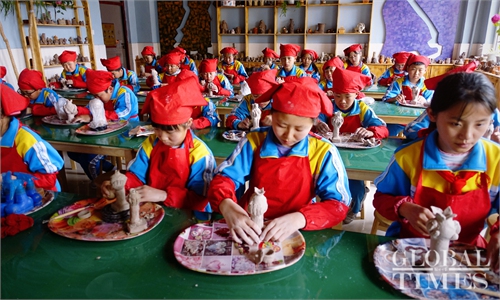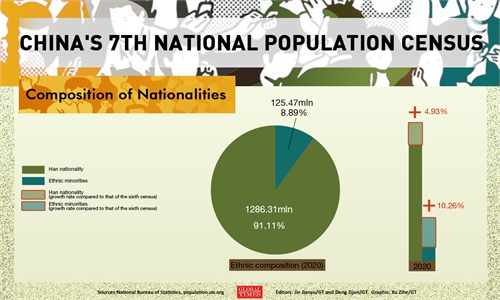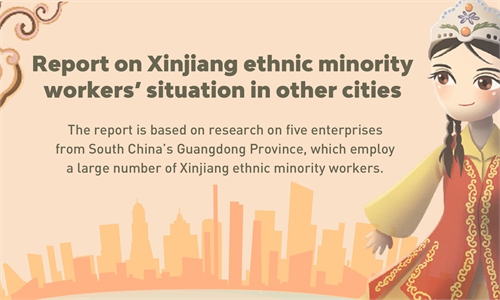East China’s Zhejiang promotes ethnic minorities’ rights through personal support and professional training
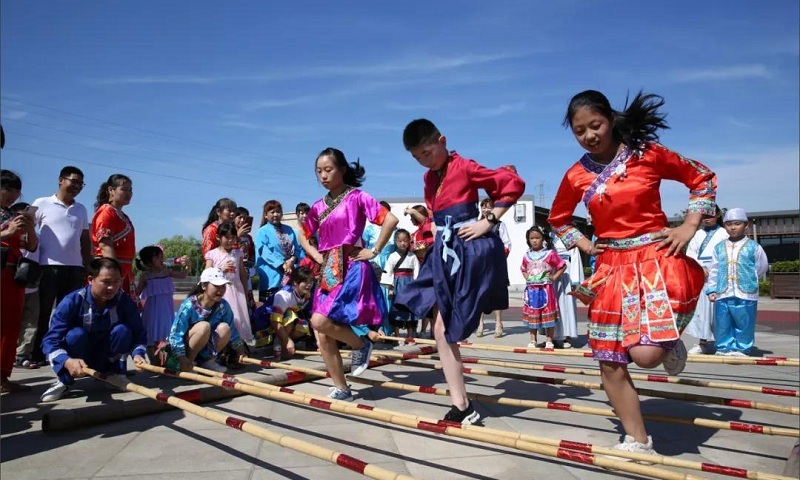
Children take part in a bamboo dance at the New Residents Festival held in August 2020 in Fuxi subdistrict of Deqing in East China's Zhejiang Province. Photo: Courtesy of Fuxi subdistrict
Yang Wenxue, a 46-year-old member of the Miao ethnic minority living in Deqing's Fuxi subdistrict in East China's Zhejiang Province, has been rehearsing a chorus recently after work to prepare for the "New Residents Festival," an annual local event to welcome people who come to live and work in Fuxi from other cities."There are 60 people in our chorus group, who come from different ethnic groups," Yang told the Global Times. Although the festival is held on the first weekend of August, rehearsals of some other shows, many presented by ethnic minorities, have started as people are longing to feel different cultures through the activity, he said.
Fuxi subdistrict is home to more than 70 enterprises and has been a popular destination for people from other cities to make a living. Currently, more than 5,500 people from 36 ethnic groups, including Miao, Yi, Bouyei and Tujia ethnic groups, have been living, studying and working in Fuxi, accounting for 10 percent of the total number of migrant workers, according to Xiao Xinfang, Secretary of the CPC Party Working Committee of Fuxi subdistrict.
To help new arrivals—also called "new residents" by locals to show respect and hospitality—settle in, local authorities have arranged various free-of-charge professional training sessions for them, as well as knowledge sessions on ethics, culture and health in a local adult school, Xiao said.
Luo Shuyang, principal of the school, told the Global Times that the school carries out various training sessions for around 30,000 people every year, among whom many are ethnic minorities. "We want to help new residents integrate into the culture and life in Deqing as soon as possible, because as long as they are in Deqing, they are a part of our big family," Luo said.
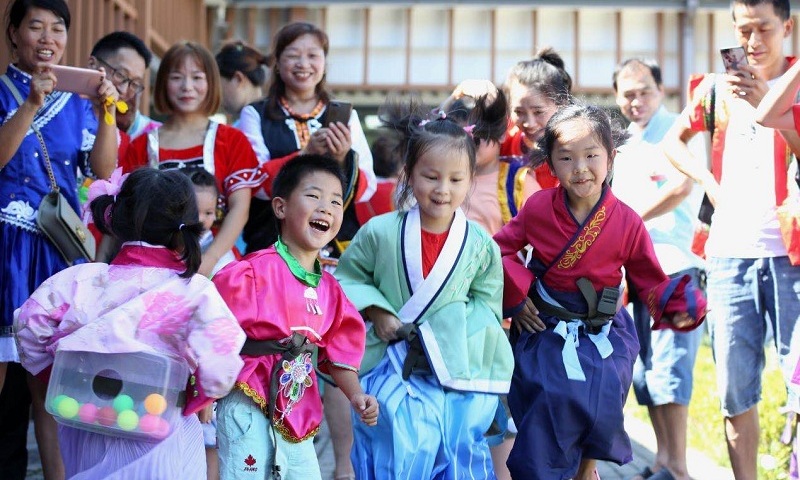
Children play games at the New Residents Festival held in August 2020 in Fuxi subdistrict of Deqing in East China's Zhejiang Province. Photo: Courtesy of Fuxi subdistrict
Yang has been living in Fuxi for over a decade, and is now a warehouse supervisor in a local electric company. He previously studied up to high school level in the school for over a year and also learnt computer skills.Like him, most ethnic minorities in Fuxi are from rural areas in South China's Yunnan, Guizhou and Sichuan provinces. Some had received limited education and talked influent Putonghua, which resulted in challenges when they moved to Fuxi, he said.
Every summer holiday, Fuxi also holds a one-month long summer-camp-style program for new residents' children, who are left in their hometowns and come to Fuxi to visit their parents during the holiday. Local teachers and college students are invited to join the program to teach the kids with various activities, the Global Times learned.
Zhejiang is one of the major provinces in China that welcomes a large number of ethnic minorities. By the end of 2020, the registered population of ethnic minorities was 567,000, and the floating population of ethnic minorities reached 2.819 million.
Besides support in their lives and employment in Zhejiang, local authorities have been encouraging ethnic minorities to actively engage in local affairs, like community management, in a bid to ensure they enjoy the same rights as locals, and can participate in local affairs and create a stable and harmonious living environment.
Tusongnisha Rouzimaiti, a member of the Uygur ethnic minority from Northwest China's Xinjiang Uygur Autonomous Region, started the Family Service Center in Jiangdong subdistrict of Zhejiang's famous city Yiwu in April 2018, where there are over 12,300 residents from China's 44 ethnic groups and also over 3,000 expatriates from other countries.
A multi-lingual speaker, Rouzimaiti and her service center help both ethnic minorities and expatriates in the area handle a wide range of issues, including mediation on family or economic disputes, education on laws and policies as well as protecting the rights of women and children, Rouzimaiti told the Global Times.
Rouzimaiti is also an auxiliary police in the Jiangdong police station.
"We also encourage some ethnic minorities to take part in volunteer activities in local communities, which have impressed the locals a lot and make us understand each other more," she said.
